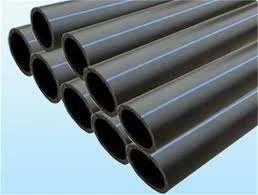Des . 11, 2024 22:46 Back to list
hdpe board
Understanding HDPE Board Features, Applications, and Benefits
High-Density Polyethylene (HDPE) board is a versatile material widely used across various industries due to its unique properties and advantages. Made from the polymerization of ethylene, HDPE boards are renowned for their strength, durability, and resistance to impact, moisture, and chemicals, making them suitable for numerous applications ranging from construction to furniture.
Properties of HDPE Board
One of the most notable features of HDPE board is its high-density structure, which allows it to maintain significant rigidity while remaining lightweight. This characteristic makes it easier to handle and install compared to heavier materials like wood or metal. Moreover, HDPE boards exhibit excellent resistance to ultraviolet (UV) radiation, ensuring that they do not degrade or lose their color when exposed to sunlight over extended periods.
Another essential property of HDPE boards is their chemical resistance. They do not react with various acids, bases, and solvents, which makes them ideal for use in environments where exposure to harsh chemicals is a concern. Additionally, HDPE is non-toxic and can even be used in applications related to food storage and processing, complying with safety standards.
Furthermore, HDPE boards are waterproof, preventing the absorption of moisture, which is crucial for outdoor applications or areas prone to spills. This water resistance also contributes to their long lifespan, reducing the need for frequent replacements and repairs.
Applications of HDPE Board
Given their impressive range of properties, HDPE boards find applications in a multitude of sectors. In the construction industry, they are often used for making wall panels, roofing materials, and flooring. Their lightweight nature allows for easy installation while offering enough sturdiness to withstand wear and tear.
hdpe board

In the manufacturing sector, HDPE boards are used for creating various products such as shipping pallets, containers, and even industrial casings. Their resistance to moisture and chemicals makes them ideal for storing hazardous materials without the risk of contamination.
Additionally, HDPE boards are popular in outdoor applications, such as making furniture, playground equipment, and signage. Their ability to withstand weather elements means that they do not warp, crack, or fade over time, providing a long-lasting solution for outdoor use.
Benefits of Using HDPE Board
The benefits of HDPE board extend beyond just its physical properties. The material is highly recyclable, which aligns with sustainable practices and reduces environmental impact. Many manufacturers utilize recycled HDPE, thereby minimizing the demand for virgin plastic and lowering overall plastic waste.
Moreover, the ease of fabrication associated with HDPE boards allows for a broad range of design possibilities. They can be cut, shaped, and welded according to specific needs, making it easier to create customized solutions for various projects.
In terms of cost-effectiveness, HDPE boards can be more economical than traditional materials in the long run, considering their durability and low maintenance requirements. This advantage makes them an appealing choice for businesses looking to optimize budget while ensuring quality.
Conclusion
In conclusion, HDPE boards serve as a robust, versatile, and sustainable choice for various applications across industries. With their exceptional strength, chemical resistance, and recyclability, they provide long-lasting solutions that meet modern demands for durability and environmental responsibility. As industries continue to seek innovative and responsible materials, HDPE boards will undoubtedly play a significant role in shaping the future of manufacturing and construction.
-
HDPE Natural Sheet: Durable, Food-Grade & Versatile Plastic Solutions
NewsAug.27,2025
-
Durable Glossy PVC Rigid Sheet | Premium High-Shine Panels
NewsAug.26,2025
-
Durable PP Rigid Sheet: Lightweight, Chemical Resistant Solutions
NewsAug.21,2025
-
PVC Grey Sheet for Extraction: Chemical Resistant & Durable
NewsAug.19,2025
-
Durable PVC Pipe Fittings for Plumbing & Irrigation Needs
NewsAug.18,2025
-
HDPE Steel Belt Reinforced Spiral Corrugated Pipe | High Strength
NewsAug.17,2025

